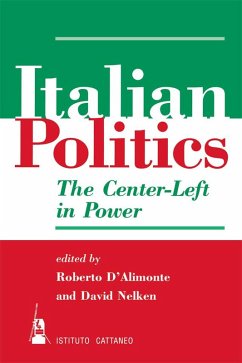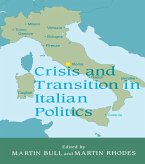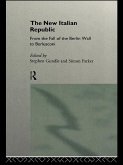The year 1996 in Italian politics was a year rich in novelty. After the stalled transition of 1995, the political atmosphere had begun to change. Most obvious was the end of Dinis unelected government of technocrats, supported by a heterogeneous group in Parliament, and its replacement with Romano Prodis government, a coalition of the parties that had won the general election on April 21, 1996. But an even more important change and one more likely to be remembered was a new climate of dialogue amongst the main political forces that emerged from this period of transition between two republics. In 1996, despite the general elections, cooperation again became part of the political game. }The year 1996 in Italian politics was a year rich in novelty. After the stalled transition of 1995, the political atmosphere had begun to change. Most obvious was the end of Dinis unelected government of technocrats, supported by a heterogeneous group in Parliament, and its replacement with Romano Prodis government, a coalition of the parties that had won the general election on April 21, 1996. But an even more important change and one more likely to be remembered was a new climate of dialogue amongst the main political forces that emerged from this period of transition between two republics. In 1996, despite the general elections, cooperation again became part of the political game.In this volume, a collection of experts examine the political developments in Italy in 1996. An introduction by the volume editors sets the tone for the year and is followed by comprehensive discussion of such issues as the general elections of April, the new placement of Left, Center-Left, and Lega Nord, the Scalfaro presidency, the Andreotti trials, Italian involvement in the European Union, and the politics of intervention in Bosnia. The volume includes two invaluable reference sections: a full chronology of the political events of the year and an appendix containing a wealth of statistical data on Italian election results, political parties, and the economy. }
Dieser Download kann aus rechtlichen Gründen nur mit Rechnungsadresse in A, B, BG, CY, CZ, D, DK, EW, E, FIN, F, GR, HR, H, IRL, I, LT, L, LR, M, NL, PL, P, R, S, SLO, SK ausgeliefert werden.









